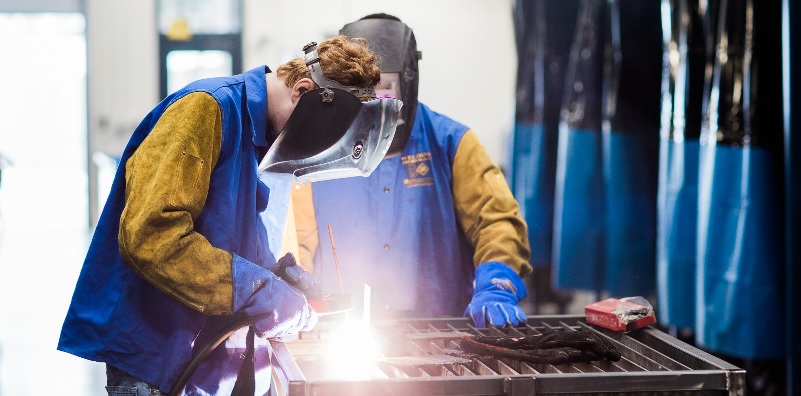A collaborative program to help people prepare for re-entry in our community has launched with success. In March, Cornhusker State Industries (CSI) and the Lincoln Manufacturing Council (LMC) partnered on a program for incarcerated individuals to learn more about the manufacturing industry and manufacturing job opportunities in Lincoln.
Over a four-week period, participants learned about the history of manufacturing, career opportunities, and what to expect in the industry. Course topics included work processes and soft skills such as communication and conflict resolution.
For Brian Koch, the Workforce Development Manager at CSI, this inaugural program was a trial to determine whether this type of program could succeed in the future.
“I spoke with LMC chairs about what we were going to consider a success. We concluded that if we can change one life, that is a great success,” said Koch.
The program’s seven graduates have been released and successfully placed in full-time positions. TMCO and Lincoln Industries, participating organizations on the Lincoln Manufacturing Council, each hired one graduate. The other graduates found full-time employment in construction, cold storage, and hospitality.
Other participants in the inaugural program included Bison, Nature’s Variety, Deter Foundry and Continental. Kawasaki training instructor, Kevin Mattran, shared information and provided historical background of the manufacturing industry.
The successful program was months in the making. Brian originally reached out to Bryan Seck, director of Workforce Development at Select Lincoln and LMC member, detailing the operation and mission of their program within NDCS and what CSI is doing to educate and prepare incarcerated individuals for working upon release. The 15-member council supported the idea of employing people that are ready, willing, and able to return to work and the community.
“By partnering with CSI, we can create stability for people released from Community Corrections and the state prison with regular, full-time employment and benefits,” said Seck.
The benefits are two-fold. Employability is a significant portion of the re-entry process, but previously incarcerated individuals are not the only benefactors from this opportunity. Lincoln currently has approximately 11,000 open positions in the city, at a time when the city and state are experiencing a notable labor shortage.
Annually, Nebraska has over 2,000 people released from state facilities and over 71,000 individuals cycle through county jails, according to the 2018 findings of Nebraska’s Coordinated Re-Entry Initiative (coordinatedreentrynebraska.com). Effective preparation for reentry and employment has great potential to narrow the labor gap while also enhancing public safety.
Individuals in CSI’s program are provided the facilities, education, and training to prepare them for the workforce, and an opportunity to be productive community members, including in Lincoln. This positive change is also evident before these individuals are even released.
“Anytime they can knock down a roadblock and get access to somebody that directly makes decisions about whether or not they get a job, they are very excited,” said Koch.
Lincoln Manufacturing Council is partnering with Community Corrections to host two additional classes, each with 20 participants, at the end of July.
To learn more about the CSI and their services, visit https://csi.nebraska.gov/.

